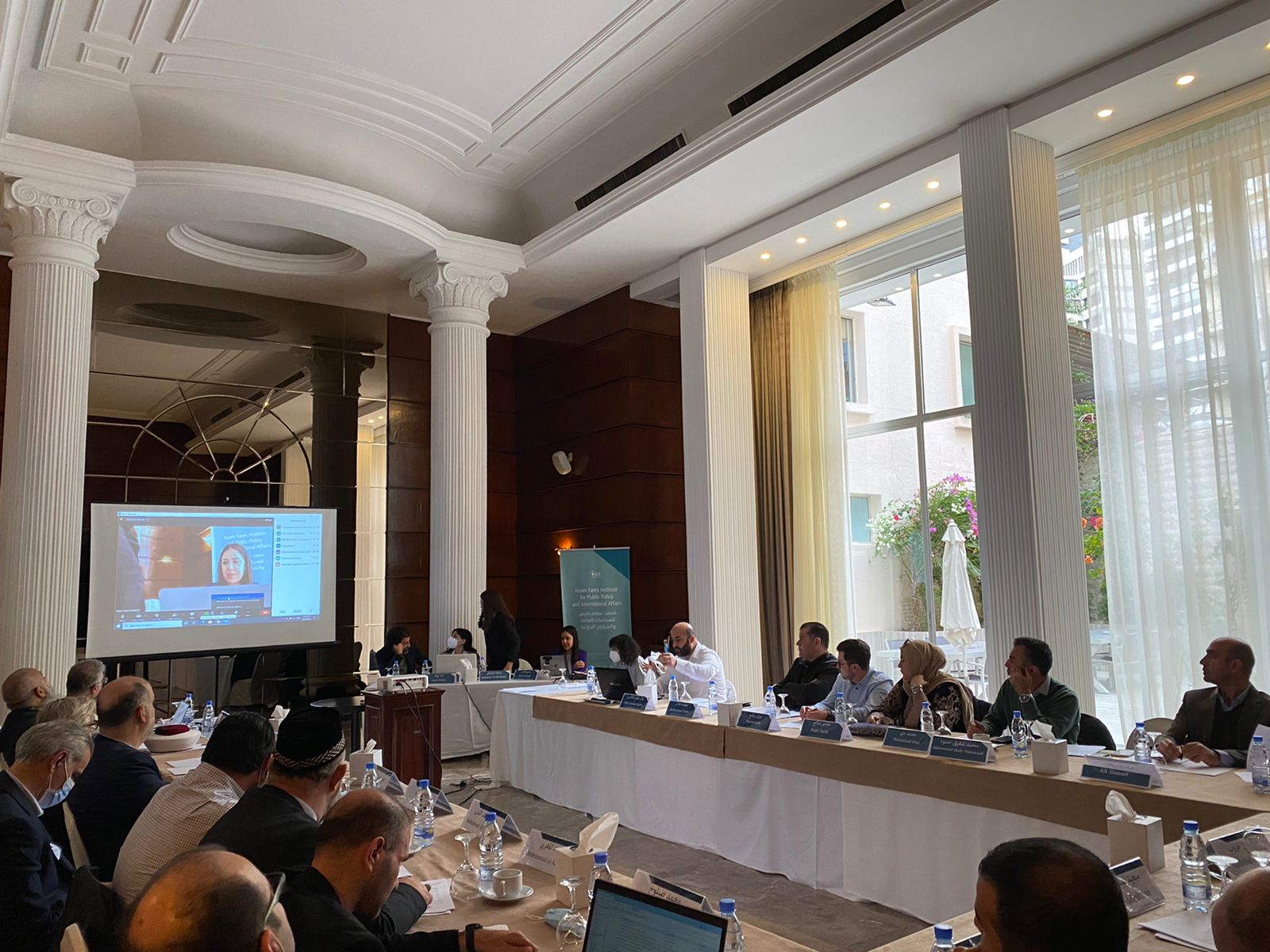Second Stakeholder Committee Meeting held in Lebanon
Beirut, December 13, 2021: Following the initial stakeholder committee meeting that took place back in February 2021, a second stakeholder meeting was organized on Monday, December 13th 2021 by the Berghof Foundation, the American University of Beirut’s Issam Fares Institute for Public Policy and International Affairs and Fondation Maison des Sciences de l’Homme, who are the Lebanon partner organizations in the project. This meeting marked the first time the project team was able to meet with the corresponding stakeholders in person, aside from separate, individual meetings and consultations as part of the fieldwork, since the first meeting was eventually held over Zoom due to the then COVID-19 restrictions. More than that, it marked the first time different key stakeholders from different work packages were able to liaise and exchange with one another. The participants present included representatives from religious state institutions, members of Lebanese civil society, prominent academics in the field and lawyers with experience in Islamist prisoners and violent extremism.

The project team reintroduced the PAVE project, highlighting the background of the project, its main objectives and the regions involved, touching upon the different work packages and emphasizing the work of the seventh work package, The Network for Religious and Traditional Peacemakers, in developing the recommendations and policy outcomes of the research results into training material, further capitalizing on the factors of resilience. Each of the three partner organizations proceeded to present their overall research approach and methodology, as well as a summary of their preliminary findings. This was followed by an open discussion with the relevant stakeholders to hear more about their first impressions and suggested feedback. Participants engaged in insightful discussions regarding the nature of violent extremism, its root causes and the various push and pull factors at play. To that end, the participants present generally agreed that violent extremism can be seen as a byproduct or reaction to grievances, marginalization and the ill treatment of Islamist prisoners by the Lebanese security forces. For the majority of the participants present, this phenomenon is further exacerbated by the Lebanese sectarian system that relies heavily on sectarian quotas, even within religious institutions. One participant asked whether the project team was able to compile enough data to create a profile on those who were typically recruited by extremist organizations, including ISIS, Al-Qaeda etc. The project team explained that while this particular aspect has not yet been covered, there is ample interest in the matter, and that it is under consideration.
Participants once again voiced their willingness to support final steps related to the research and fieldwork and expressed their interest in the findings shared, as well as their curiosity to learn more about the comprehensive research outputs. They also their expressed their willingness to read the final research papers produced and the corresponding recommendations put forth by each of the partner organizations.